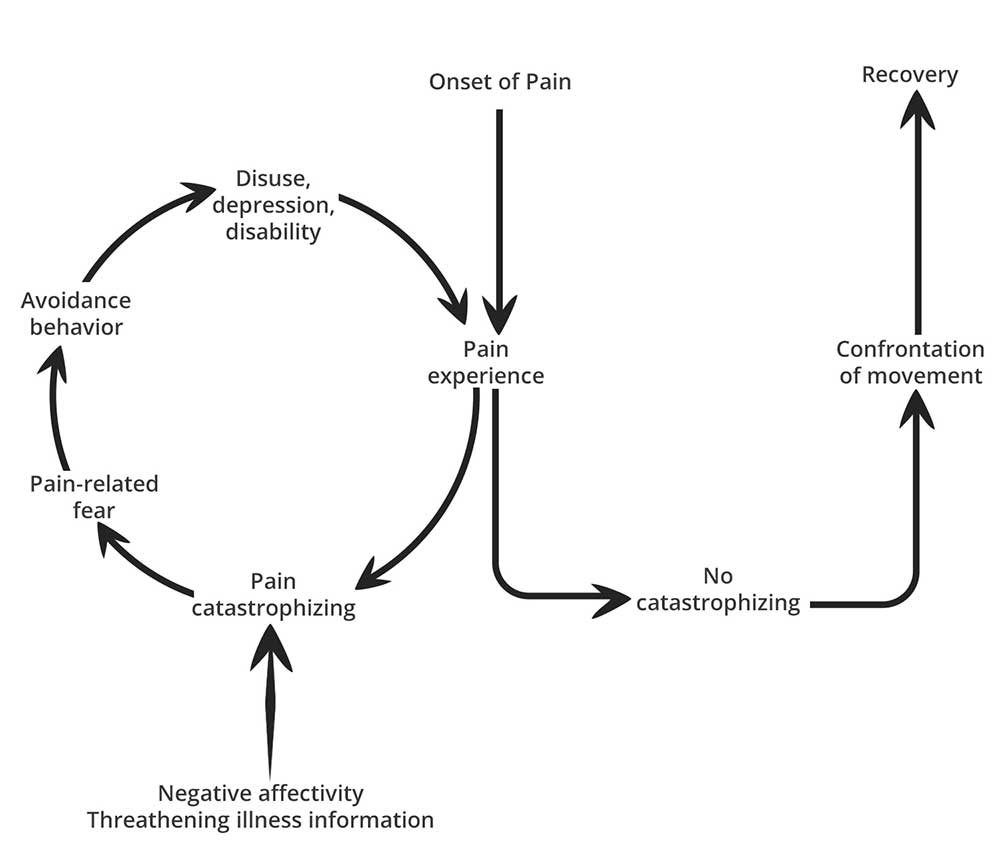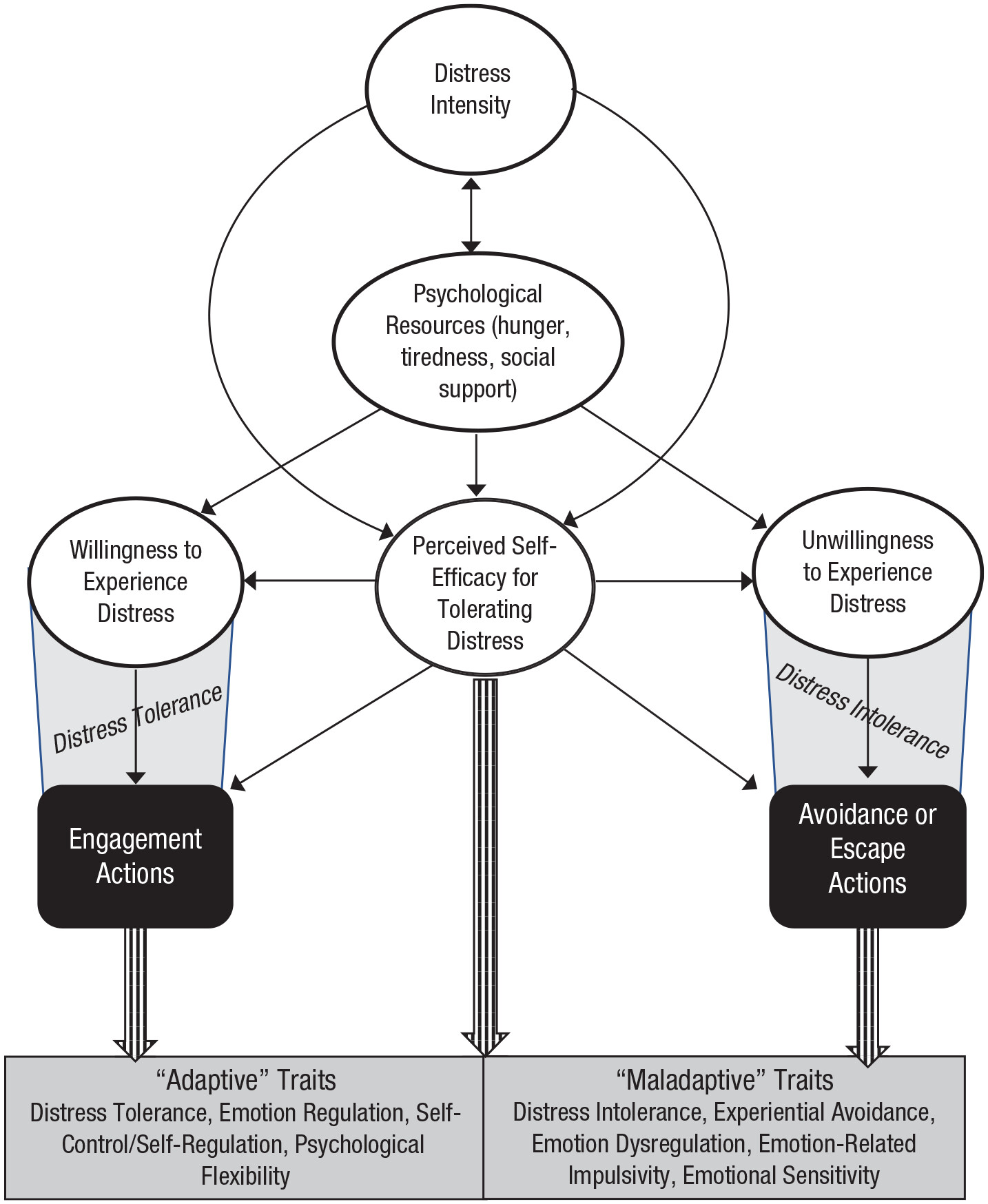Pain catastrophizing is a well known and researched concept in the management of pain that can lead to pain-related fear and activity avoidance, eventually resulting in disability. (1) Worry seems to be an essential component of catastrophizing that can lead to unhelpful (passive-avoidant) cognitive and behavioral coping strategies. (1) Persistent catastrophic worry can result in increased anxiety, depression, and disability feeding into the fear-voidance model. (1)
 (1)
(1)
Avoidance behavior in the pain experience can also be driven by another independent yet complementary element, distress tolerance. The most relevant aspect of distress tolerance, the perceived capacity to tolerate negative psychological and physical state, seems to be tolerance to negative emotions. (2) While the concept of negative affectivity is included in the fear-avoidance model (1), the tolerance to negative emotions adds another dimension to the model. (2)
The unwillingness to experience distress (distress intolerance), can also lead to further avoidance behaviors that result in more maladaptive coping strategies. (3)
 (3)
(3)
The individual level of distress tolerance is further influence by contextual factors (intrinsic and extrinsic), particularly by self-efficacy for tolerating distress. (3) Self-efficacy, the beliefs in one’s ability to manage and complete task despite pain, is a central component of the individual experience of pain. (1) Low self-efficacy is associated with higher disability, more pain, increased disease activity, more depressive symptoms, more fatigue, more fear and emotional distress, and lower quality of life. (1).
Self-efficacy for tolerating negative emotions and willingness/unwillingness to experience distress are important factors to consider in determining engagement or avoidance behaviors. (3) These aspects of the modulation of the pain experience represent clinical targets in the management of pain. (2)
- VIANIN, M. Dispositionalism in Musculoskeletal Care: Understanding and Integrating Unique Characteristics of the Clinical Encounter to Optimize Patient Care. EVOLVE GLOBAL PUBLISHING. 2021
- Trépanier, A., Turcotte, S. and Foldes-Busque, G. (2022) ‘Tolérance à la détresse et expérience de la Douleur Chronique’, L’Encéphale, 48(6), pp. 653–660. doi:10.1016/j.encep.2021.06.022.
- Veilleux, J. C. (2023). A Theory of Momentary Distress Tolerance: Toward Understanding Contextually Situated Choices to Engage With or Avoid Distress. Clinical Psychological Science, 11(2), 357-380. https://doi.org/10.1177/21677026221118327


